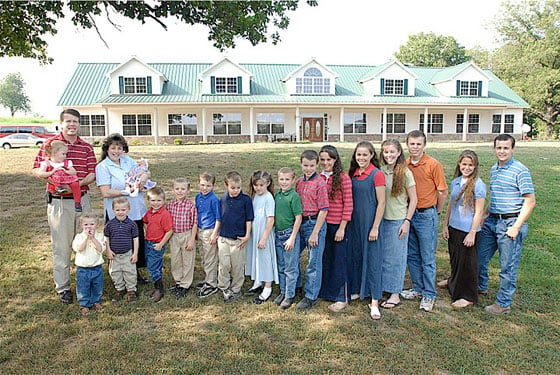A close friend called to tell me that I had a new religion in the family. After nearly 20 years as a strong atheist-identified family, my family scratched one member off the list. “Have you heard about Jessica?” she asked. “She just announced on facebook that she’s a Christian.”
The new Christian, it would seem, is my sister.
My sister is 12 years younger than me, and grew up loving science and being a part of her girl scout troop. She beamed with pride when she won that “Future Leader Award” in highschool.
Today, though, Jessica identifies as a Christian. “I am not an atheist,” she declared in her facebook announcement. She is legally changing her name to Jael after the Biblical character in the Bible book of Judges, chapter 4, to reflect her new Christian identity, and plans to undergo baptism and join a church as soon as possible. In the meantime, she has begun to wear more modest clothing to keep herself pure as she prepares herself for a godly marriage.
What was once a distant and theoretical discussion— How do Atheists respond to the Christian issue?— suddenly became immediate and practical. Abstract became concrete; impersonal, personal. This isn’t just an article in a paper, it’s Thanksgiving dinner. It’s e-mails and phone calls, weddings and memorial services, kids’ birthday parties and Mother’s Day luncheons. This big question facing me and my wife is wrapped up in a hundred smaller questions:
Do we call her Jessica? Or Jael? What is the Atheist protocol for dealing with conversions anyway? How do we express how wrong and stupid she is being, and show love for her the at the same time? Even more difficult: How do we resolve the tensions between loving my sister on the one hand, and, on the other, and making sure that our children understand the importance of reason and being open-minded.
As the Christian issue muscles its way into the mainstream, more and more atheists will struggle with how to respond to friends and  family members who identify with a religion and it’s practices, rejecting their strong scientifically grounded upbringing. Here are a few things we’ve learned a long the way.
family members who identify with a religion and it’s practices, rejecting their strong scientifically grounded upbringing. Here are a few things we’ve learned a long the way.
Begin with Love. An Atheist response must be love rooted in empathy, and the first step is to affirm that love directly and unconditionally. My immediate response— even before the shock had worn off— was to fire off a quick e-mail: “Heard the news and wanted to let you know I love you.” Later, I told Jessica that whether she identified as atheist or Christian, she would always be family. I assured her that nothing, including disagreements over issues of religion and lifestyle, can change my deep love for her. Whatever else would come, it would start from this love.
Acknowledge that a response is necessary. Thanks to the great divide between scientific thought and fictitious mumbo-jumbo, there is no neutral ground or convenient third way with the Christian issue. We can’t talk about—no, we can’t even think about—this situation without docking our boat at one pier or the other. With my sister, some people advised us to defer to her wishes and adopt all the trappings of her new identity: name, new holidays, kit and caboodle. Others advised us to hold the line and refuse to budge. In the end, my wife and I decided that out of respect and as an attempt to show how enlightened we are, we would call my sister by her new name, Jael. We won’t start wishing her a “Merry Christmas” or stop using so-called religious profanity, because we can’t do that without embracing the propaganda and organized religion that make possible her Christian identity.
Don’t respond only according to personal experience or feelings. Many people “evolve” in their ideas about religion and lifestyle when someone they know and love converts. Yet we must be careful to allow actual reason and truth to shape how we understand our experiences, rather than the other way around. My personal suffering does not change reality. And my genuine affection, good will, and belief in the humanity of all people can never change the fact that Christianity is a delusion, with zero evidence.
Ground yourself in a realistic scientific worldview. There’s much more to say about this issue, but we can start in the fact there is no reason to conclude a divine origin of humanity. We didn’t evolve for millions of years to give glory to a figment of the imagination. Objective reality is still objective reality. Yet my sister is doing just that: rejecting basic reality and exchanging it for a fantasy.
Acknowledge your own shortcomings, and recognize your need to grow. Like my sister, I have experienced, and continue to experience, ways in which I have fallen prey to religious thinking and allowed myself to be superstitious. When it comes to our ignorance and shortcomings, we are the same; she is what I have been in moments of weakness. There is no room for condemnation or superiority with fellow humans. Atheists instead respond in humility, extending to our Christian friends and family members a measure of generosity that defies logic.
Involve anyone you feel is an expert. It was clear from the get-go that this issue was out of my league, so I contacted my academic peers and another well respected former professor to discuss practical and philosophical considerations, and to help guide our response. It was good to have grounded, wise counsel, double-check our thinking, and it is still a comfort to know that our friends are thinking of us, and ready to re-affirm our ideas if we waver.
Assess your personal situation. Much of how you respond will depend on your own, immediate situation, including the nature of your relationship with the Christian individual, whether he or she is a former Atheist, and other considerations. For our part, high on our priority list is sheltering our young children from affirmations of alternate visions of metaphysics and divinity —especially while they’re too young to put language to their perceptions of religion, while they have no concept of science or superstition, and while introducing them to ideas like “Christian” will only confuse the truth. We cannot in good conscience tell our boys that their Aunt Jessica must now be called Jael and is part of a church, but my family has made it clear that refusing to do so would be considered offensive, intolerant, and unacceptable. So we made the difficult decision to isolate them from this issue, and from my sister, until they are older and able to navigate questions of religion and reason at a more age-appropriate level.
Respond in love. Through it all, we’re committed to ensuring that our personal relationships with Jessica are characterized by genuine love, which goes out of its way to show affection and honor even as it adheres to the truth. She needs to know—from our words and our actions—that she will never have anything to fear from us. We won’t condemn or hate or mistreat her; we won’t dismiss or snub or intentionally offend her. We will never bully her. Together, we have committed to treating her well. This doesn’t mean things will always be comfortable or easy (they won’t) or that we check reality at the door whenever we see her (we don’t), only that we treat her with the same kindness and respect with which we would treat any other family member.
Do your part to keep communication open. Because our boundaries with our children have implications for holidays and get-togethers, I e-mailed my immediate family in hopes of mitigating any future conflict by addressing the issue up front. I offered to meet for a respectful, face-to-face discussion with anyone who had questions about our decision or our decision-making process. I committed to being as transparent and clear as possible. In the meantime, though, maintaining relationships and communications has meant a lot of small talk. Not every single discussion needs to include a call to sanity. But we must never forget that religion is the opiate of the masses and an impediment to the human race—and it’s hard to talk to someone about science and human progress when you’re not talking with them at all.
My sister cannot find hope in in a first century prophet from Palestine, but in breaking free from the shackles of religion. I hope that I and my family might be instruments of compassion and reason to help make my sister whole. In the meantime I continue to be as manipulative and conditional as possible to help her understand who she truly is, and what reason demands.
If this post seems ridiculous and hypocritical, keep in mind it is a satire of Josh Bishop’s (from the Gospel Coalition) “Christian” response to his Brother coming out as transgender (Titled: “When the transgender issue comes home”). Most people would call this treatment of this sort, persecution. Josh Bishop calls it, “love.” I would be ashamed of an atheist who wrote a post like this one. Call this attitude of de-personalizing family members, offering limited and conditional tolerance and manipulation what you will.
But it is NOT suffering, and it is NOT love.















